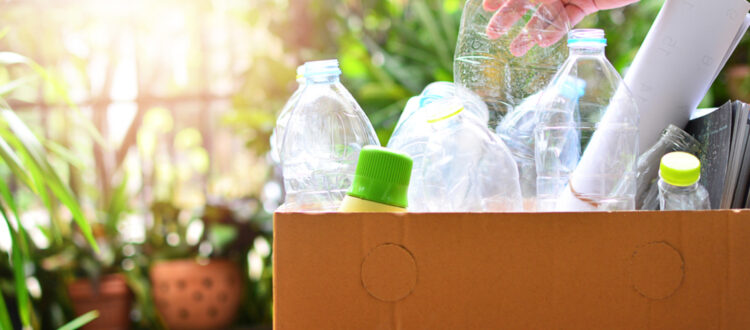Wish-Cycling Is Bad: Avoid It For A Plastic-Free World

Have you ever tossed your greasy pizza box in a blue bin, along with other to-go containers and disposable cups, without thinking twice? Despite your resolution to create a plastic-free environment, are you indeed working towards that?
Sorry to break it to you that you, unknowingly, have been a threat to the environment and also a participant in contamination of a humongous load of recyclables, just by doing wish-cycling.
Simply speaking, wishing for something questionable or non-recyclable to be recycled is what we call wish-cycling.
Is wish-cycling good or bad?

One moment you might stand in front of the blue cart, wondering if the empty juice box you’re holding is recyclable or does it need to go to the garbage bin, and the very next second you reflex yourself into putting it along with to-be-recycled product items.
No doubt, you hope that even if it’s non-recyclable, it would make its way to the incinerator or a landfill. Alas, that one item might adulterate the whole pile of recyclables.
The machinery used at recycling facilities to sort different kinds of recyclables are magnets, optical sorters, crushers, shakers, blowers etc.
These machines are designed only to feed the materials which come under the category of recyclables. There are people who are employed to do all the handpicking in order to segregate non-recyclables from recyclables.
Most of the time, some of the non-recyclables are likely to be missed by the employee, and that’s how they make their way down the recycle line and end up polluting the whole bunch, and sometimes, even jamming up the machinery.
In the worst conditions, things like gas canisters, furniture etc. might put the facility through the hazards of fire.
How to avoid recycling contamination

- Curb your wasteful ways by adjusting yourself to the sustainable concepts of ‘Reduce, Repair and Repeat’. Adding to the plastic trash and recycle box should be your last go-to.
- Don’t assume. Try knowing the type of material you want to be recycled. When in doubt, toss it into the trash bin – you can’t recycle every waste.
- Remind yourself that not all cardboards, paper mugs, plastics are recyclable.
- Clean and dry everything which has accommodated your food, for example, remove the oily crust and toppings from pizza boxes.
- Engrave your mind with the fact that plastic bags, boxes containing remnants of foods, loose shredded paper, hazardous items like paints and varnishes, glasses bottles capped with metal are a few of the worst contaminants of recyclable waste.
Not recyclable but a contaminant

Greasy cardboard– The used takeout boxes which get soaked in grease and cheese, putting box-tent to zero use, hold the capacity of damaging the recycling equipment or contaminating the potent recyclables.
Lids of water or soda bottles- Most of the lids are manufactured from a plastic called polypropylene, which is non-recyclable.
Pans and bakewares– Due to high heat withstanding power, and thereby, even a higher melting point makes your oven-safe dishes and other pans non-recyclables.
Styrofoam or Polystyrene Containers- The cheap styrofoam or polystyrene packaging you receive your food parcels in, straws and other cutlery have the ability to even survive the landfills, therefore, aren’t recyclable.
Bubble wraps and plastic bags- The lightweight material used in making wraps and plastic shopping bags is a potent threat to the machinery, as it can clog the equipment. If you really wish to be plastic-free by recycling them, then do your research about plastic recycling.
Hardcovers- Books that come with hardcovers are not completely recyclable as the sturdy cover is made of cloth, plastic or leather.
Health-care waste– Needles, plastic syringes, and prescription containers are biohazards, and therefore, can’t be recycled.
Putting an end to wish cycling

In order to curb the hazards of wishful-cycling, the first thing you need to do is to know what your city’s recycling program actually requires, and how they sort recyclable materials.
Be responsible enough to unlearn the ways which add more to the bulging odoriferous landfills. Help create a plastic-free world by avoiding it in the first place and educate yourself on how plastics can be recycled.
In order to avoid tossing non-recyclable items into the blue cart, make a list of all the throwaway items and stick it above your trash bins.
A simple habit of keeping materials clean, and the ability to decide when junk is not a blue bin material, can go a long way. Happy recycling!




